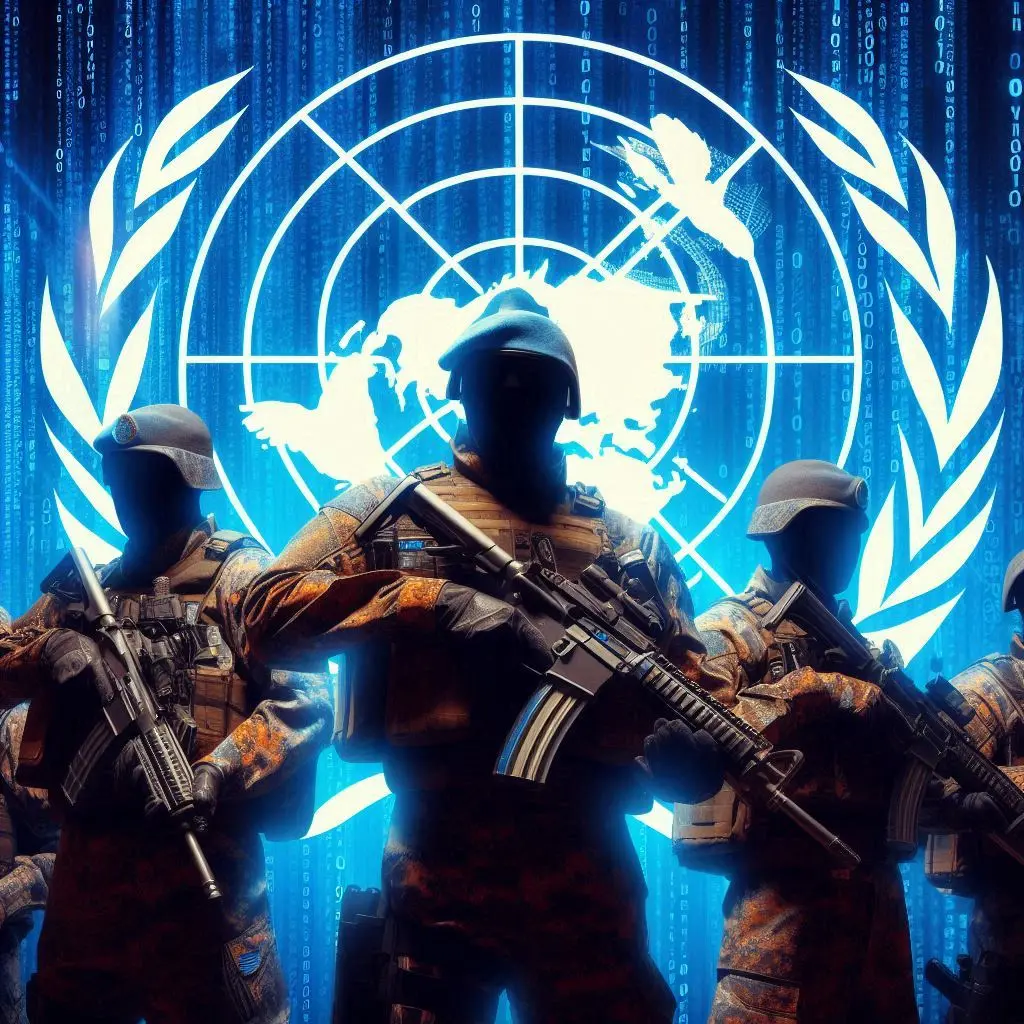United Nations Warning on Cyber Mercenaries
Recently the UN Secretary-General expressed concerns over what is now turning to be regular cyber mercenaries. These are private companies that are vested in with the production, marketing and support of all types of Offensive Cyber Capabilities, which is a major threat to security. Here are some key points from the UN’s warning:Here are some key points from the UN’s warning:
About:
- There is growing concern that a government’s ability to control cyberspace is eclipsed by the activities of so-called ‘cyber mercenaries’—private entities devoted to creating, promoting, and assisting offensive cyber capabilities, enabling spying on networks, computers, phones, or any devices connected by the internet.
- Various terms describe this sector, including ‘cyber mercenaries,’ ‘intrusion as a service,’ ‘surveillance-for-hire,’ or simply ‘private sector offensive actors.’
Key Threats:
- Malicious Activity in Cyberspace: Both state and non-state actors engage in malicious cyber activities. Essential services like healthcare, banking, and telecommunications are frequently breached. Criminal organizations and “cyber mercenaries” perpetrate relentless illicit actions.
- Blurry Lines: Civilian “hacktivists” increasingly blur the line between combatants and civilians, contributing to fear and division online.
- New Vulnerabilities: The integration of digital tools with weapon systems creates new vulnerabilities. Sophisticated malware proliferates, and AI-enabled cyber operations amplify the threat.
- Ransomware: Ransomware is a significant menace, threatening public and private institutions, critical infrastructure, and financial stability. In 2023, total ransomware payments reached a staggering $1.1 billion.
Impact and Challenges:
- Undermining Trust: Malicious cyber activities erode trust, undermine public institutions, and disrupt electoral processes, sowing the seeds of violence and conflict.
- Public and Private Sectors: Both sectors face immense challenges. Governments must protect citizens, while businesses safeguard their operations and data.
Understanding the New Frontline in Cyber Warfare
Nowadays, companies are involved not only in direct, face-to-face combat, but also in the online world. States and organisations face new challenges with a formation of modern fighters: cyber mercenaries. Here their status is underlined, the threats that exist for the world, and points from Tim Maurer’s book on that topic are considered.
Cyber Mercenaries and Tim Maurer
Tim Maurer’s book, “Cyber Mercenaries: The article, “The State, Hackers, and Power”, speaks of the ways states conduct their operations in cyberspace by using intermediaries. Unlike the older generation of fighters, these cyber mercenaries’ operations are not regulated by any set standard hence making them robust warriors in cyberspace. One of the most recognised examples is the Wagner Group, a Russian PMC that is also considered being highly secretive and very deadly.
Cyber Security Military Salary: What Do Professionals Earn?
Military cybersecurity as a field provides fairly well paid positions because the protection of such important information is crucial. Specialists in the States of this sector can get paid up to $100,000 per year. These roles are crucial in dealing with cyber threats, training, and capable of performing complicated operations. The high pay-outs clear point to the significance of safeguarding a nation’s security in the realm of the internet.
Are Private Military Contractors Mercenaries?
In many cases PMCs are accused of being mereenary organizations, though there is a marked difference between the two. PMCs work for the money and do not need to be affiliated with the political and/or culture of the employers. Even their status is in some ways uncertain and the international conventions have been formulated in an effort to control their usage. Thus, their services are important for performing necessary tasks, at the same time, their actions may look like mercenary actions rather than legal actions of military organizations.
What is a Mercenary?
Agent provocateur can be defined as an individual who is endowed with the responsibility of working with another party, normally an armed force, fighting in an armed conflict in another country for the sake of remuneration. Unlike normal soldiers, mercenaries do not have any patriotic sentiments and work only for the financial reward for their fighting skills. This has made them being involved in conflicts thereby raising ethical and legal issues especially on their responsibility and impact on the international order.
Can You Become a Mercenary?
Becoming a mercenary typically requires a background in the military or law enforcement. Mercenaries are employed in various roles, including protection services, foreign military missions, and other security-related tasks. While the financial rewards can be substantial, the job is inherently dangerous and emotionally taxing. Those considering this path must weigh the risks and challenges against the potential benefits.
Cyber Mercenaries: The State, Hackers, and Power PDF
For those interested in a deeper dive into the world of cyber mercenaries, Tim Maurer’s book “Cyber Mercenaries: The State, Hackers, and Power” is a valuable resource. It provides comprehensive insights into how states use hackers and private military companies to exert power in cyberspace. The book is available in PDF format for those who wish to explore this critical topic further.
Can You Legally Be a Mercenary?
There is room for debate as to of being a mercenary is legal. For instance, there is United Nations Mercenary Convention that has been specifically designed to set the borders for the utilization of mercenaries. Nevertheless, enforcement is rather complex, and most mercenaries work in the legally ambiguous zones. While some countries have set fixed rules for those who wish to engage in mercenary activities, other states do not pay much attention to this issue, which complicates the legal status of such a modern soldier of misfortune.
Conclusion
Cyber mercenaries are a new element on the stage of global security, and their appearance gives birth to new challenges to many countries’ security. With the advancement of technology and society’s dependency on these digital tools growing, the danger of these entities cannot be overlooked. Moreover, it is necessary to comprehend what specific roles they perform and the potential consequences of their activities in order to build an appropriate approach for mitigating their impact and preserving the purity of cyberspace.
